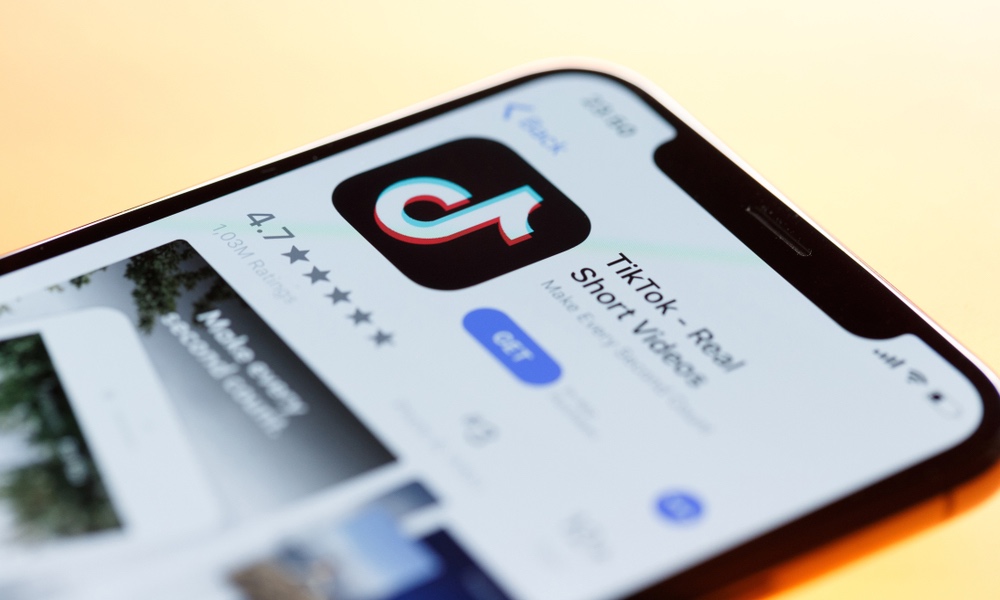Apple Still a Top Ad Spender on TikTok, Despite Growing Controversy
 Credit: XanderST / Shutterstock
Credit: XanderST / Shutterstock
Toggle Dark Mode
TikTok enjoyed an 11% increase in advertising revenue during March, despite the growing controversy over U.S. officials’ national security concerns and a possible ban on the Chinese-owned short video social platform. Apple is among the top ad spenders on the platform, along with Amazon, DoorDash, and Pepsi.
Financial Times reports that popular brands are showing no signs of cutting their ad spending on the platform. FT says several ad executives and agency leaders told it that advertising agencies, including agency giants Omnicom and Group M, have not told clients to reduce their ad spending on the platform.
Software group Capterra surveyed 300 U.S. marketers, finding that 75% of survey respondents had plans to increase spending on the TikTok platform over the next 12 months.
Some brands are apparently making contingency plans in case the U.S. does ban TikTok, making plans to move their ad dollars to platforms owned by Meta and Google, as well as other platforms.
Advertising makes up the largest piece of TikTok’s $10 billion in revenues. The social platform has battled to grab ad market share from its competitors by lowering its ad rates below those of its competitors. Research group Insider Intelligence forecasts TikTok to collect $14.15 billion in revenues in 2023, which is a considerable jump from the $9.89 billion it earned in 2022.
In March, congressional hearings were held where U.S. legislators quizzed TikTok’s chief executive over national security fears about the short video social app’s Chinese ownership.
The Chinese government has also been waging a campaign against a ban or any changes in TikTok ownership. The campaign has included a social media campaign heckling U.S. government concerns over the app, even accusing Congress of being hypocrites, xenophobes, and technically illiterate. (Okay, maybe they’re onto something with that last one.)
Beijing says it would “firmly” oppose the U.S. government’s effort to separate TikTok’s US operations from its Chinese ownership.
Despite China’s best efforts, several parties in the U.S. have valid concerns over the Chinese-owned social platform. The Chinese government holds a strong influence over the country’s tech companies, leading to fears that the Chinese government could influence which videos are being shown and promoted to American TikTok users, due to fears of the platform being used for propaganda.
So far, the U.S. government has placed a ban on the app being installed on government devices, and the Federal Communications Commission has called upon Apple and Google to remove the app from their iOS App Store and Google Play Store, respectively. The U.S. military has joined the more than half of U.S. state governments that have enacted their own bans on the app.
The Biden administration is also seeking the power to allow the President to ban apps like TikTok if they are considered to be a national security risk. Other countries have expressed their concerns over the app, as Australia recently banned the app from government devices and U.K. officials have fined the app’s developer over violations of privacy laws.
9to5Mac reports that the Alliance for Securing Democracy has been monitoring social media posts made by Chinese state media and diplomats. The non-partisan group has found a huge increase in TikTok-related posts, many of them taking on an aggressive tone.
The Chinese-connected Twitter accounts made over 200 tweets about TikTok from March 20 to March 26 of this year. In contrast, those same Twitter accounts made less than 150 TikTok-related tweets during January and February 2023. There was a noticeable spike in such tweets immediately on the heels of the March congressional hearing, with more than 75 tweets being posted on March 24 alone.
Tweets were of the typical propaganda themes, accusing the U.S. of being xenophobic, criticizing the U.S. system of government, accusing them of being paranoid and hostile toward Chinese-owned businesses.
This information first appeared on Mactrast.com







